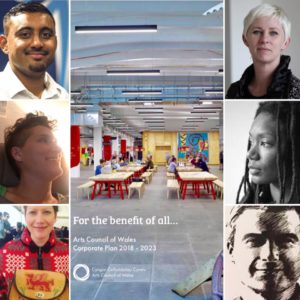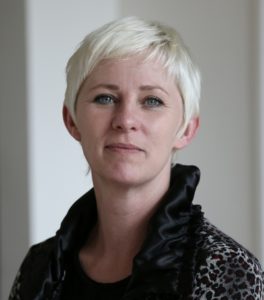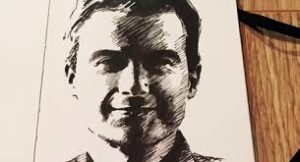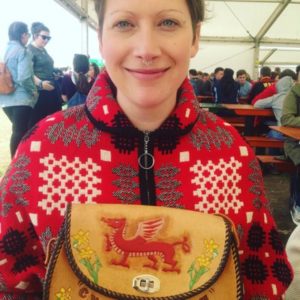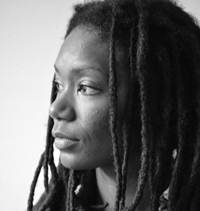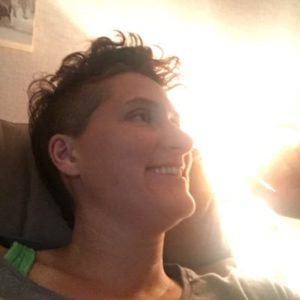Our mission statement at Get The Chance is “Creating opportunities for a diverse range of people to experience and respond to sport, arts, culture and live events.”
We were very pleased to see some of the priority areas in the new Arts Council Wales, Corporate Plan, 2018 – 2023 “For the benefit of all”
In particular we were interested in Commitment 2 below
We will enable a greater number and a wider diversity of people to enjoy, take part and work in the publicly funded arts.
ACW then go onto make a series of intentions (below) for where they want to be in 2023 (5 years)
We will be able to demonstrate clearly that all our funding programmes promote and contribute to equality and diversity
There will be a narrowing of the gap between those in the most and least affluent social sectors as audiences and participants
We will develop the creative work of disabled artists by funding “Unlimited” commissions and developing a scheme similar to “Ramps on the Moon” operated by Arts Council England
We want to introduce a “Changemakers” scheme placing BAME and disabled people in senior executive positions in the arts
We want to see a doubling of the number of disabled people in the arts workforce
We want to see a doubling of the number of Black and Minority ethnic backgrounds in the arts workforce
We want to have introduced an Arts Council Apprenticeships scheme designed to provide opportunities for people from diverse backgrounds
We will have achieved a trebling of the number of BAME and disabled and on APW boards of governance
We have been in discussion with a number of colleagues in the arts sector in Wales to request a personal response to Commitment 2 and are pleased to share their responses below. Please do get in touch if you would like to contribute.
ACW are currently asking for responses to their Corporate Plan and future Lottery funding priorities from members of the public, you can make an online response at this link .
Or attended one of the physical meetings. The public meetings associated with the consultation will take place at Tŷ Pawb, Wrexham (30 November), Volcano, Swansea (10 December), Riverfront Newport (7 January 2019), Aberystwyth Arts Centre (11 January 2019) and Pontio, Bangor (21 January 2019).
Further details are available on the Arts Council of Wales website. The consultation closes on 15 February 2019.
Carole Blade, Creative Producer
Coreo Cymru
During 2019, Bombastic and Coreo Cymru will be hosting Family Dance Festival, a 70-minute entertaining and interactive dance programme for families, presented free of charge in theatre foyers and outdoors during the Easter holidays. Piloted in 2017 and further developed in 2018, Family Dance Festival features three Wales-based professional dance companies and local youth groups at each venue plus taster workshops for all, framed within a bilingual (Welsh/English) context and supported with accessible shows and feedback systems.
Our 2018 programme delivered an accompanying training and seminar event to promote Audio Description, resulting in the first Welsh language audio described live performances. In 2019, we will also offer BSL interpreted shows and focus on developing an audience and appetite for these services by actively forging relationships with members of the blind and D/deaf communities. We will do this through visits to local support centres, clubs and groups, offering programme insight and critically supporting a dialogue, asking questions to inform our deliver methods and to reveal a wider view of general provision, requirements and needs. Working in collaboration with Creu Cymru’s Hynt and the local venue, we will gather data to support general approaches to accessible practice in Wales starting with visits to local clubs and later request feedback relating to their FDF experience.
We will again work with Audio Describer Ioan Gwyn, who benefited from FDF2018 bespoke training programme and toured with the company offering both Welsh and English language descriptions. We will also work with experienced BSL interpreter Sami Thorpe of Elbow Room, to support the text based work and our reach. Their understanding of the target audience and experience within the performing arts, coupled with our plans to consult with individual service users through visits to their respective clubs and groups, prior to the tour, will enable the means and structure for a quality service. Ioan and Sami will work with the Front Of House staff at each venue to ensure quality customer care of our accessible audiences, positioning themselves at the box office to welcome and familiarise. Where possible we will integrate Ioan and Sami into the actual performance to positively reinforce inclusiveness and will create specific feedback forms to inform delivery and methods.
Gareth Coles / Voluntary Arts Wales Director / Cyfarwyddwr Celfyddydau Gwirfoddol Cymru
The second commitment in the Arts Council of Wales’ new Corporate Plan recognizes that the challenge is to increase and diversify participation in the publicly-funded arts. But levels of participation in different forms of creative activity may actually be very high, as people practice their creativity in libraries, church halls, pub function rooms and on kitchen tables and bedroom desks. Voluntary Arts Wales estimates that there are around 4,000 community and amateur creative groups in Wales. But these voluntary and everyday creative activities may not benefit from public subsidy, and therefore may not regularly appear on the radar of public funders.
There is a rich and diverse ecology of the arts in Wales: an ecology that we believe includes amateur, everyday creativity as well as the professional arts, and in which all elements are interdependent and mutually supportive. An attempt to engage more people in the publicly-funded arts might start with an appreciation of the creativity that people choose to practice themselves. Rather than see a deficit of engagement in the arts, we might recognise the cultural assets and activities that already exist within communities across Wales, and build stronger links with the publicly funded arts.
Diversifying governance
In 2016, Voluntary Arts conducted a project called Open Conversations to improve our understanding of creative cultural activity in Black Asian and Minority Ethnic (BAME) communities across the UK. We convened an Advisory Panel of experts in BAME creative activity, who made introductions, accompanied staff on visits, and met regularly throughout the project to discuss findings. Voluntary Arts staff and Expert Panel members conducted long, unstructured and informal conversations with practitioners across the UK. At the end of the project, we invited the Panel members to become Trustees of Voluntary Arts, and now 5 of our 11 Board members are from BAME backgrounds. As a result of this work, we became the first arts organisation to win a Charity Governance Award for Board Inclusion and Diversity.
We have also sought in recent years to celebrate the excellent work that exists in the voluntary arts sector to champion diversity, through our annual Epic Awards. Get the Chance was a recipient of the Celebrating Diversity award in 2017.
Increasing participation
Our Drawn Together project, a partnership with Coast Lines, has engaged over 2,500 people of all ages in producing over 5,000 observational drawings – creating a collective visual representation of Wales in 2018 (now on display in the National Museum of Wales, Cardiff). The feedback shows that 96% of participants felt happier and more positive as a result, but the majority weren’t creatively active, or involved in any arts or community groups. We believe this worked because we took the project to places where people convene: in existing community groups, libraries, cafes, care homes, workplaces and schools. We worked with Big Issue vendors in Cardiff, residents living with dementia in a care home in Pembrokeshire, RNLI volunteers in Aberystwyth and farmers in rural Denbighshire. A majority of project participants now want to continue their creative practice.
Branwen Davies
Writer/Theatre Maker
I welcome this commitment. We all should. We all benefit from a wider diversity of people enjoying and taking part in the arts.It needs to be ever evolving and new energy and life bought in. We all have skills, experience and stories to share. Quite often I find we are ignorant or unaware of challenges facing others and it needs to be addressed and challenged and become second nature not a box ticking exercise.
In uncertain times socially and politically, especially where people feel threatened and surrounded by divisions and threats, the arts can play a pivotal role in confronting fears and open channels of communication. We are social animals. We need to seek each other out. We need to go knocking on doors and meet face to face and not rely so much on social media to connect.
I constantly bang on about the transformative power of the arts! It’s life-enhancing – music, theatre, images, installations, dance etc in all it’s glorious forms. They enable us to communicate, engage and express ourselves and that positive experience can spill out in to all areas of life. It gives us an emotional literacy and helps us try and make sense of the world and our surroundings. It infuriates me that music and drama and literature are constantly threatened within the education system and that there are less opportunities from an early age to engage and benefit. Mental health issues, anxiety and lack of confidence is on the rise in schools and I am in no doubt there is a direct link. The arts are essential to our wellbeing and the earlier we are exposed the better. It is also vital to ensure that there are opportunities for all ages and that it isn’t all focused on youth but continuous in to old age.
It has to start with a conversation – what are the complex needs of different cultures, genders and abilities in Wales? For a small nation our diversity and needs are huge! There is no one size fits all. What are the present weaknesses and gaps and challenges and how do we approach change and a new model of addressing and implementing things for the benefit of all? It’s essential to give a voice to those who aren’t usually given a platform and we must empower those who don’t think their story is of value. We also need to showcase and showoff what we can offer so that people are aware of the possibilities and the work that is and can be created.
The image of the arts needs to be changed so that people feel that they can take ownership and that it belongs to them. It’s up for the current gate keepers not to just welcome and implement an open door policy and a willingness to listen but to actually do the ground work and seek people out face to face. This connection and nurturing needs to be sustained. We have the talent, skills and expertise in Wales but we need, especially in times of funding cuts to pool resources and collaborate and communicate much better than we already do and to be in regular contact and communicate and share knowledge with each other.
My background is in playwrighting and one positive experiences I have had was ‘The Fresh Ink’ initiative with the Sherman Theatre where over a period of 10 weeks I visited St Teilo School in Llanedeyrn, Cardiff. I worked with a group of students who had never visited the theatre and who had little confidence or interest in writing. Allowing them to step away from thinking and writing academically, encouraging them to find their own voice and to take ownership of their language and rhythms of speech the students grew in confidence and produced extremely moving and passionate short plays that were then performed by professional actors at their school in front of their peers. Their reaction and their pride in their words and stories was empowering. For the first time some of them felt they had created something of worth and value and were proud to share it. The Sherman are currently running a playwrighting scheme for similar students to whom opportunities have been limited. The weekly sessions are free of charge and transport is provided. The students work will be performed at the Sherman in the spring.
Adeola Dewis
Artist, researcher, academic and TV presenter
I have just read the corporate plan. I feel little excitement although I think the targets are attractive. My main contribution to this goes back to the idea of getting out of offices and on to the streets, into community spaces without an agenda and seeing what one can learn.
This feels like wanting to do research and already knowing the answer. I think its problematic in its genesis.
Of course the key is the youth, the next generation but I also believe that bodies like the ACW already have a public image and in order to broaden its public perception (increase participation and attendance in publicly funded arts), honest work will need to be done from the inside, beyond inviting token BAME individuals to be on their board. This crucially involves getting to know who you are working with and for and perhaps getting your ‘targets’ from the people and what matters to them rather than the governments with their outward facing strategies.
I am struggling to articulate a coherent response to that as I believe the response would need to be rooted in research. What I mean is, we are talking about arts participation, but that is just ‘our’ arts. There are groups and communities making ‘arts’ and doing their thing that get washed over for various reasons. What is at the core of the desire to increase participation? What are ‘more diverse’ communities and groups already doing and how do we foster conversations that facilitate an equal space for voice and visibility and limits the threat of appropriation.
Bethan Marlow
Writer
First of all, the fact that these goals and priorities have been set is fantastic because it means we’re really acknowledging that this is a problem. There are many, many people still feeling excluded from the arts (not just as audience members but as people wanting to work in it too) so having a goal to change that can’t be anything but a good thing.
How will it actually be achieved?…….. action. Action by all. Everyone, every single one of us currently working in the arts needs to assess our ways of working, our processes and avenues of finding collaborators and we need to really question how inclusive we’re been the past. And if we haven’t been inclusive, or inclusive enough, we MUST, must make change. From hiring to casting to finding audiences we must continuously ask ourselves whether we’re doing enough to make sure that ALL people feel invited. I sometimes feel like I’m the P.C police these last few years (I’m sure my co-workers feel it to!) because I have made a conscious decision to ask the difficult questions and speak up for those not in the room. And it’s not always comfortable. It makes people uncomfortable but the only reason we all feel uncomfortable is because we know there’s a problem. “Have we gone to all lengths possible to find BAME actors that can audition for this part?”, “Our focus should be on finding female musicians”, “have we considered Welsh learners for this part?” I don’t ask these questions to make people feel guilty, I’m doing it so that we can create active change so that we’re not guilty of being exclusive. We need to keep reminding each other of being inclusive until it becomes second nature.
Abdul Shayek
Director of Fio
I guess my major reflection on this has to be that whilst we have a statement being made by ACW which I believe is the right one. What seems to be missing is the response from arts leaders who have the resources to really make a difference. I guess unless a firmer and clearer picture is presented in terms of the sharing of power and resource, the inevitability is that this will remain words on a page. We, have to question how a sector which is led by same people will suddenly decide this needs to be prioritised just because ACW has said so, we need to go further and find other more innovative solutions where power is shared more equally?

